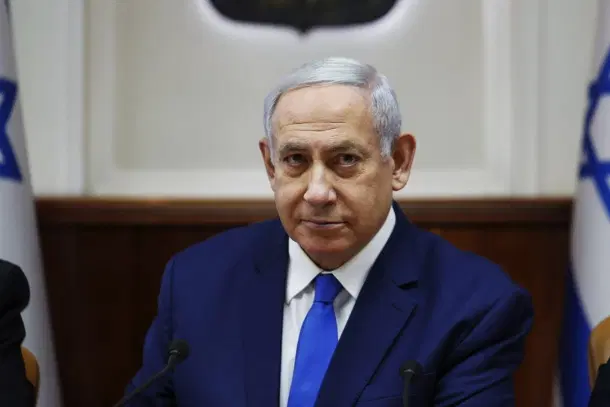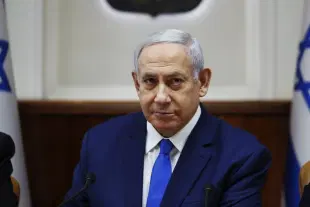News Brief
Israel And Hamas Reach Deal To Exchange Deceased Hostages For 600 Palestinian Prisoners
Vansh Gupta
Feb 26, 2025, 04:35 PM | Updated 04:35 PM IST
Save & read from anywhere!
Bookmark stories for easy access on any device or the Swarajya app.


Israeli and Hamas officials confirmed on Tuesday (25 February) that an agreement has been reached to facilitate the exchange of deceased hostages for the release of hundreds of Palestinian prisoners, ensuring the fragile ceasefire remains intact for at least a few more days, as reported by AP.
Resolution to Prisoner Release Deadlock
The dispute over the release of 600 Palestinian prisoners, which Israel had put on hold since Saturday (22 February), had threatened to derail the ceasefire.
Israel had delayed the release in protest over what it described as the inhumane treatment of freed hostages during their release by Hamas.
In response, Hamas accused Israel of violating the ceasefire agreement, stating that negotiations on a second phase of the deal would not proceed until the prisoners were freed.
However, late Tuesday (25 February), Hamas announced that an understanding had been reached following discussions in Cairo with a delegation led by Khalil al-Hayya, a senior political figure in the group.
Exchange Expected in the Coming Days
As part of the deal, Hamas is set to return the bodies of four Israeli hostages, while Israel will proceed with the delayed release of Palestinian prisoners and additional detainees as part of the agreement.
The prisoners previously slated for release “will be released simultaneously with the bodies of the Israeli prisoners who were agreed to be handed over," the Hamas statement was quoted as saying by AP.
An Israeli official reportedly confirmed the planned return of the bodies but did not disclose further details.
Israeli media reports suggest the exchange could take place as early as Wednesday (26 February).
Reports also indicate that the remains of the Israeli hostages will be handed over to Egyptian authorities discreetly, without any public display.
This contrasts with past exchanges where Hamas conducted highly publicised ceremonies, parading released hostages before large crowds. Israel, alongside the Red Cross and the United Nations, had condemned these acts as degrading and humiliating for those released.
Completion of Phase One and Path to Further Negotiations
With this latest agreement, both parties would have fulfilled their obligations under the first phase of the ceasefire deal. This phase involves Hamas returning 33 hostages, including eight deceased individuals, in exchange for the release of nearly 2,000 Palestinian prisoners.
The breakthrough also opens the door for White House Mideast envoy Steve Witkoff’s anticipated visit to the region. Witkoff has emphasised the need for both parties to move forward with negotiations on Phase Two, which aims to secure the release of all remaining hostages and work towards ending the conflict.
However, these talks have been stalled for weeks despite initial plans to begin discussions earlier.
Background and Ceasefire Impact
The current ceasefire, brokered by the United States, Egypt, and Qatar, brought an end to 15 months of intense conflict that began following Hamas’ 7 October 2023, attack on Israel, which resulted in the deaths of approximately 1,200 people and the abduction of around 250 hostages.
Israel’s subsequent military operations in Gaza have led to a death toll exceeding 48,000 Palestinians, as per Hamas-controlled Gazan health ministry, while 90 per cent of Gaza’s population has been displaced.
Also Read: First ‘Made In India’ Semiconductor Chip Likely To Be Rolled Out This Year
Vansh Gupta is an Editorial Associate at Swarajya.





